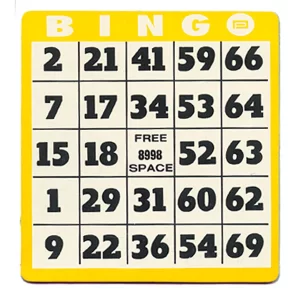Responsible Gambling – Tips for Setting Limits and Staying in Control

Responsible Gambling refers to a set of practices designed to keep gambling enjoyable for everyone involved, including budgeting, setting limits, avoiding impulse decisions and seeking support.
Many jurisdictions require property-wide signs and disclosures about responsible gaming, along with providing a toll-free helpline number and toll-free helpline number for assistance. Furthermore, many online casinos provide self-exclusion programs.
1. Set a limit on the amount of money you’re willing to spend
Gambling can be an engaging hobby that provides plenty of excitement and potential rewards, but if not undertaken responsibly it can quickly turn into an unhealthy and addictive pastime that leads to financial distress and straining relationships.
Responsible gambling requires being aware of and taking measures to prevent problem gambling from developing, such as setting time and money limits, diversifying gambling activities and not chasing losses; as well as using self-exclusion tools.
Furthermore, it’s wise to avoid gambling under the influence of alcohol or drugs as these substances can make it harder to remain within your limits. Take breaks away from computers or mobile devices at regular intervals to clear your head and maintain perspective. Seek help if you believe you may have a gambling addiction – there are resources available to those in need.
2. Set a limit on the amount of time you’re willing to spend
Gambling can be an entertaining pastime, but when managed improperly it can lead to serious difficulties for individuals and society in general. Problem gambling may lead to financial challenges, damaged relationships, and addiction; thankfully there are various measures available to you in order to stop this cycle from developing – for instance setting time limits and not spending money you don’t have available for gambling.
As time moves at an unpredictable rate when gambling, it’s wise to set a limit for how long you want to devote to this activity. Setting a timeframe helps keep track of gambling activity without interfering with responsibilities or activities outside gambling.
At the same time, it’s also essential to your emotional well-being not to let gambling consume your life. If gambling seems out of your control and has taken control over you, do not hesitate to seek assistance; many organizations and hotlines provide assistance for those experiencing gambling issues.
3. Set a limit on the amount of money you’re willing to lose
Responsible gambling encompasses strategies and tools designed to assist gamblers in managing their spending and controlling their gambling habits. These may include setting loss limits, tracking gambling expenses and seeking professional assistance as necessary.
Loss limits are set thresholds of money that a gambler is willing to lose during a gambling session, to prevent excessive losses that may cause financial strain, emotional distress and addiction.
Loss limits can also serve as an invaluable way of recognizing problem behaviors, like chasing losses. Playing the odds may signal addictive tendencies while wagering with funds intended for essential needs could indicate compulsive gambling. By setting and adhering to loss limits, you can protect yourself from the financial repercussions associated with gambling while continuing to enjoy it as entertainment. Gambling responsibly is especially essential when betting on sports. For more information and tips about responsible sports gambling click here.
4. Set a limit on the amount of time you’re willing to spend
An integral aspect of responsible gambling is recognizing when you’re spending too much time gambling at one session than intended. Many casinos provide patrons with a timer feature and alert them when their time limit has been reached, helping prevent you from getting carried away with the thrills and spills of casino gaming and losing track of how much time has been spent gambling.
Gambling should be seen as a form of entertainment and not as an income source. Keep in mind that odds are always against you, so only risk money you can afford to lose.
Responsible gambling programs aim to prevent problem gambling behaviors from developing in the first place, by raising public awareness and offering resources. September 13-19 marks Responsible Gaming Education Week; to learn more visit their website where there are quizzes, myths and facts as well as info about limit setting tools, cool off periods and self-exclusion mechanisms.








